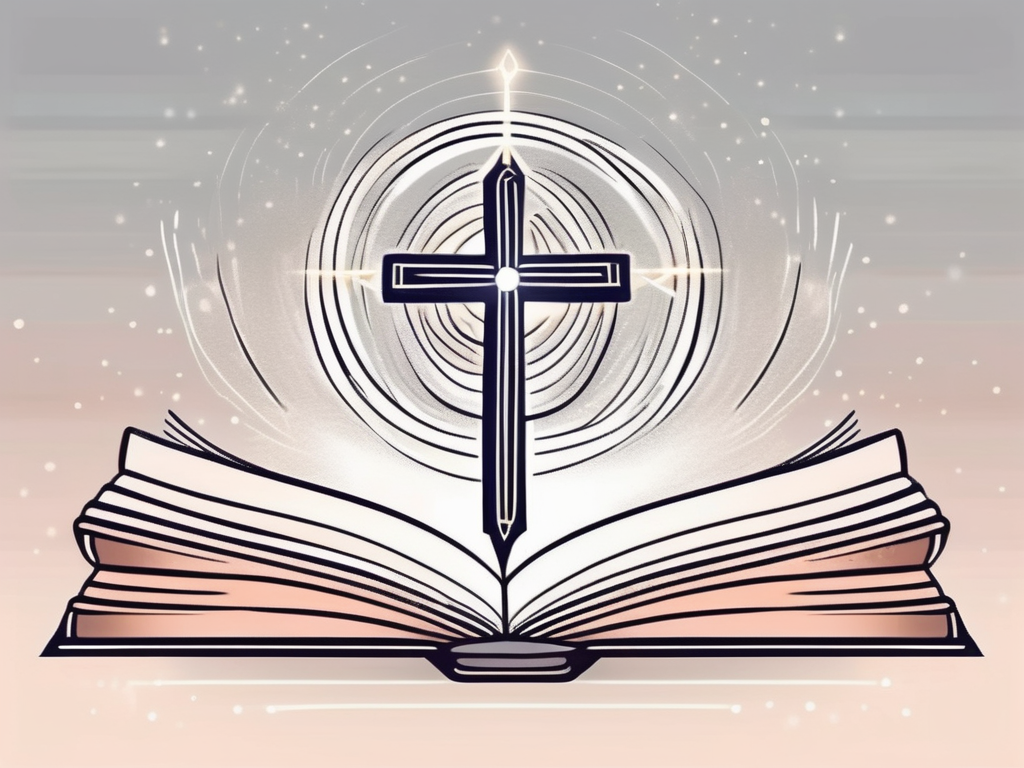Welcome to the captivating world of the Miriam Bible, a treasure trove of untold stories and timeless wisdom. This remarkable biblical text offers a unique perspective on the narratives, teachings, and representation of women in religious scriptures. Join us as we delve into the origin, history, and significance of the Miriam Bible, and explore the lesser-known stories it holds. Discover the invaluable lessons and teachings that can be gleaned from this ancient text, and learn how they can be applied in our modern lives. Furthermore, we will delve into the role of the Miriam Bible in the context of Christianity and its influence on other religions. Finally, we will explore the impact of the Miriam Bible on feminist theological thought and the representation of women within its pages.
Understanding the Miriam Bible
The Origin and History of the Miriam Bible
The Miriam Bible, often regarded as a hidden gem of biblical literature, has a fascinating origin and history. It is believed to have been written during a time when women’s stories were marginalized and their voices muted. However, through the efforts of dedicated scholars, this remarkable text has been unearthed and its significance recognized.
Delving into the depths of history, we find that the Miriam Bible emerged from a collective of women writers who sought to challenge the prevailing narrative that predominantly featured male perspectives. These courageous women, spanning various periods throughout history, were determined to ensure that their experiences, perspectives, and wisdom were not erased from the annals of time.
Their voices, once silenced, now resound through the pages of the Miriam Bible, reminding us of the power of storytelling and the importance of inclusivity. Through their words, we gain a glimpse into the lives of women who lived in a world that often overlooked their contributions.
The Unique Features of the Miriam Bible
One of the distinguishing aspects of the Miriam Bible is its focus on the untold stories within biblical narratives. While the traditional canon tends to highlight well-known figures, the Miriam Bible shines a spotlight on lesser-known characters whose tales offer fresh insights and alternative viewpoints.
As we immerse ourselves in the pages of the Miriam Bible, we encounter a diverse cast of characters who have long been relegated to the margins of biblical literature. We hear the voices of women such as Hagar, Tamar, and Rahab, whose stories have often been overshadowed by the narratives of their male counterparts.
Through these narratives, the Miriam Bible challenges us to question the dominant narratives that have shaped our understanding of biblical history. It invites us to explore the complexities of the human experience and to embrace a more inclusive and nuanced perspective.
In addition, the Miriam Bible places a strong emphasis on the experiences and struggles of women in biblical times. By exploring these narratives, readers gain a deeper understanding of the complex and significant roles women played in shaping history and spirituality.
We learn about the strength and resilience of women like Deborah, who led her people to victory, and Esther, whose bravery saved an entire nation. These stories serve as a powerful reminder that women have always been integral to the fabric of society, even when their contributions have been overlooked or undervalued.
Through its unique lens, the Miriam Bible invites us to reimagine the stories we thought we knew and to embrace a more inclusive and holistic understanding of biblical literature. It challenges us to listen to the voices that have been silenced and to recognize the profound impact that women have had throughout history.
The Untold Stories in the Miriam Bible
Exploring the Lesser-Known Narratives
Within the pages of the Miriam Bible, a multitude of captivating stories await exploration. These narratives provide glimpses into the lives of women who have largely been overlooked in traditional biblical texts.
One such story tells of a wise woman named Rachel, who, through her cunning and quick thinking, saves her village from destruction. In the face of imminent danger, Rachel devises a plan that not only outwits the enemy but also unites her community in a powerful display of resilience and unity. Her story serves as a testament to the strength and resourcefulness of women, reminding us that wisdom knows no gender.
Another chronicle within the Miriam Bible takes us on a journey alongside Hannah, a forgotten prophetess who delivers powerful messages of hope and redemption. Despite being overshadowed by more well-known prophets, Hannah’s words resonate with a profound sense of compassion and understanding. Her story challenges the notion that only men can be vessels for divine revelation, highlighting the importance of recognizing and amplifying the voices of women in spiritual discourse.
These stories not only showcase the bravery and resilience of these women but also offer important lessons for contemporary readers. Through their experiences, we learn the value of courage, ingenuity, and the power of individual agency. Their stories remind us that history is not solely shaped by grand events and prominent figures, but also by the countless acts of bravery and wisdom carried out by ordinary individuals.
The Significance of These Stories
While the traditional biblical canon has undoubtedly shaped religious and cultural norms, the stories contained within the Miriam Bible serve as vital reminders that there is more than one perspective to consider. These untold stories broaden our understanding of history, challenge societal norms, and provide representation for marginalized voices.
By shedding light on the varied experiences and contributions of women, the Miriam Bible invites readers to reconsider long-held beliefs and embrace a more inclusive and balanced worldview. These stories empower individuals, particularly women, to embrace their unique strengths and navigate their own spiritual journeys.
Moreover, the narratives within the Miriam Bible also highlight the importance of intersectionality. While the focus is on women, these stories acknowledge that gender alone does not define one’s experiences or challenges. They explore the intersections of gender, race, class, and other social factors, reminding us of the complex and interconnected nature of human existence.
Through the exploration of these untold stories, readers are encouraged to critically examine the narratives that have shaped their understanding of the world. They are invited to question the absence of certain voices and perspectives in traditional texts and to actively seek out diverse and inclusive sources of knowledge and inspiration.
In conclusion, the Miriam Bible offers a treasure trove of untold stories that expand our understanding of history, challenge societal norms, and provide representation for marginalized voices. These narratives serve as powerful reminders of the resilience, wisdom, and agency of women throughout time. By embracing these stories, we not only enrich our own spiritual journeys but also contribute to a more inclusive and balanced worldview for future generations.
Wisdom in the Miriam Bible
The Miriam Bible is not just a collection of captivating narratives; it is a treasure trove of wisdom and life lessons that transcend time and cultural boundaries. Its teachings encompass a wide range of themes, including compassion, justice, resilience, and faith.
Through its parables, proverbs, and insightful reflections, the Miriam Bible imparts valuable guidance on navigating challenges, fostering interpersonal relationships, and seeking spiritual growth. Its lessons resonate with readers of all backgrounds, offering solace, inspiration, and guidance in the complexities of life.
One of the key teachings in the Miriam Bible is the importance of compassion. It emphasizes the need to show kindness and understanding towards others, regardless of their background or circumstances. This message of empathy and compassion is particularly relevant in today’s world, where divisiveness and intolerance often prevail.
Another significant theme in the Miriam Bible is justice. It highlights the importance of standing up for what is right and advocating for the marginalized and oppressed. The stories and teachings in the Miriam Bible serve as a reminder that justice is not just a legal concept but a moral imperative that requires active engagement.
Resilience is yet another valuable lesson found in the Miriam Bible. It teaches readers the importance of perseverance in the face of adversity and the strength that can be gained from overcoming challenges. The stories of individuals who triumphed over seemingly insurmountable obstacles serve as a source of inspiration and encouragement.
Applying Miriam Bible Wisdom in Modern Life
Although the Miriam Bible is an ancient text, its wisdom remains remarkably relevant in our modern world. The stories and teachings contained within its pages provide a timeless framework for navigating contemporary issues.
By drawing inspiration from the Miriam Bible, readers can find guidance on issues such as gender equality, social justice, and personal empowerment. Its inclusive and empowering message encourages individuals to challenge societal norms, pursue their passions, and advocate for positive change.
For instance, the Miriam Bible’s teachings on gender equality can serve as a powerful tool for promoting inclusivity and dismantling patriarchal systems. It challenges traditional gender roles and emphasizes the equal worth and dignity of all individuals, regardless of their gender.
In terms of social justice, the Miriam Bible’s teachings remind us of our responsibility to fight against injustice and oppression. It calls on individuals to use their voices and take action to address systemic issues such as poverty, discrimination, and inequality.
Furthermore, the Miriam Bible’s teachings on personal empowerment inspire individuals to embrace their unique gifts and talents. It encourages them to have faith in their abilities and pursue their dreams, even in the face of obstacles. By doing so, individuals can make a positive impact on their own lives and the lives of others.
In conclusion, the Miriam Bible is not just a historical text; it is a timeless source of wisdom and guidance. Its teachings on compassion, justice, resilience, and faith continue to resonate with readers today, offering valuable insights into navigating the complexities of life. By applying the wisdom of the Miriam Bible to modern issues, individuals can contribute to a more just, compassionate, and empowered world.
The Miriam Bible in Religious Context
The Role of the Miriam Bible in Christianity
While not officially recognized as part of the traditional biblical canon, the Miriam Bible holds great significance in the realm of Christianity. Its inclusion provides an opportunity for believers to explore the diverse perspectives and contributions of women throughout biblical history.
By acknowledging the narratives and teachings within the Miriam Bible, Christianity embraces a more inclusive and comprehensive understanding of spirituality. It allows for the recognition and celebration of women’s integral roles in shaping religious traditions and offers a broader framework for theological exploration.
The Influence of the Miriam Bible on Other Religions
Beyond Christianity, the Miriam Bible’s influence extends to various other religious traditions, inspiring interfaith discussions and dialogues. Its universal teachings of compassion, justice, and equality resonate with individuals from diverse faith backgrounds.
By incorporating the Miriam Bible into interfaith conversations, communities can foster a deeper sense of understanding, promoting dialogue, and nurturing shared values. This ultimately strengthens bonds between different religions and contributes to a more harmonious and inclusive society.
The Miriam Bible and Feminist Theology
The Representation of Women in the Miriam Bible
One of the most significant contributions of the Miriam Bible to theological discourse is its elevation of women’s voices and experiences. By showcasing the stories of women who have been traditionally silenced or overlooked, the Miriam Bible challenges patriarchal interpretations of religious texts.
The Miriam Bible presents women as complex and multi-dimensional individuals, capable of profound insight, leadership, and spiritual depth. Through these narratives, it offers a powerful counter-narrative to traditional gender roles and inspires a reimagining of female representation in religious contexts.
The Impact on Feminist Theological Thought
The inclusion of the Miriam Bible within feminist theological discourse has provided scholars with a valuable resource for dismantling oppressive structures and advocating for gender equality. Its stories and teachings empower women to challenge patriarchal norms and reclaim their spiritual agency.
By incorporating the perspectives and wisdom found within the Miriam Bible, feminist theologians have expanded their understanding of spirituality, justice, and liberation. This intersectional approach recognizes the interconnectedness of various forms of oppression and seeks to dismantle them in order to create a more inclusive and equitable society.
As we conclude our journey through the Miriam Bible, we are left in awe of the hidden gems, untold stories, and profound wisdom it contains. This remarkable text invites us to question, reflect, and reimagine our understanding of history, spirituality, and gender equality. From its lesser-known narratives to its timeless teachings, the Miriam Bible continues to unveil truths and unlock insights that have the power to transform lives and communities. May its influence inspire us all to celebrate diversity, challenge norms, and embrace the untold stories and wisdom within our own lives.












